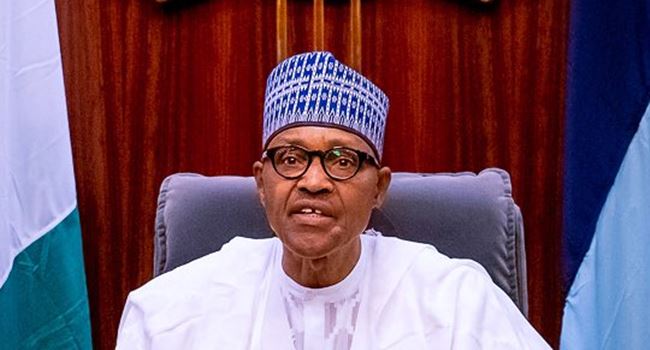Business
IMF tells President Buhari to borrow more, or raise taxes

International Monetary Fund said the Nigerian government and other African countries would have to borrow more funds, or increase taxes in order to meet spending needs that have existed before and after the COVID-19 pandemic.
The international financial institution said there are three challenges facing African governments: Firstly, to meet increased spending needs; secondly, to contain a pronounced increase in public debt, and finally, to mobilize more tax revenues.
In an email seen by Ripples Nigeria, it was gathered that the Nigerian government and its African counterparts can’t choose one without affecting the other two, hence the World Bank stated that there’s an “ncredibly difficult balancing act” that is needed to address the situation.
“How policymakers navigate this trilemma will have a huge bearing on economic and social outcomes in the coming years.” the World Bank said in the email titled The Policymakers’ Trilemma, and sent on Wednesday.
READ ALSO: Despite recurring bandits’ attacks, Buhari pledges food security
“Higher spending, for example, will require that the authorities either take on more debt or increase taxes. Or both. On the other hand, efforts to boost tax revenues—although politically and socially challenging—would provide much-needed resources to either increase spending or contain debt. Or both.” the statement said.
The need for more spending is draw from the falling region wide unemployment level, which the World Bank put at eight and a half percent in 2020. It was also stated that over 32 million people have been thrown into poverty.
The Bretton Woods institution also mentioned disruption to school and marginalized workers who were affected by the pandemic and disruption to activities across sectors.
“…demands for increased social spending, and for investment in health, education, and infrastructure, have all, understandably, intensified. And the pressure is only going to get stronger as by 2030 nearly one in two new entrants into the global labor force will come from sub‑Saharan Africa.” The World Bank said.
By Fakoyejo Ayodeji
Join the conversation
Support Ripples Nigeria, hold up solutions journalism
Balanced, fearless journalism driven by data comes at huge financial costs.
As a media platform, we hold leadership accountable and will not trade the right to press freedom and free speech for a piece of cake.
If you like what we do, and are ready to uphold solutions journalism, kindly donate to the Ripples Nigeria cause.
Your support would help to ensure that citizens and institutions continue to have free access to credible and reliable information for societal development.






















